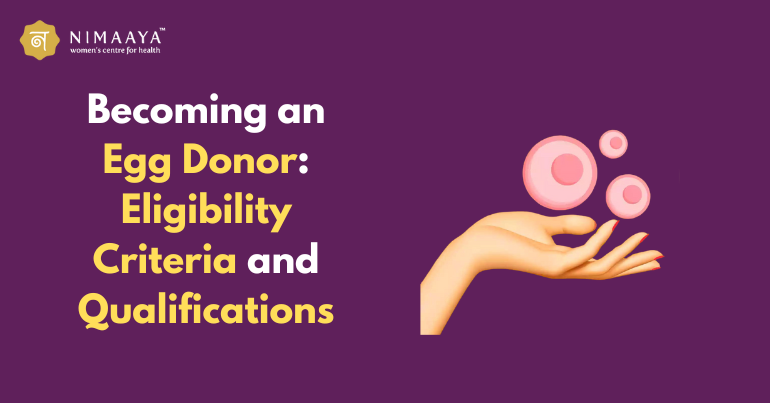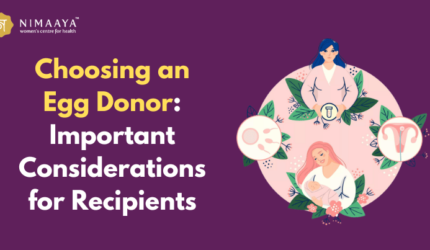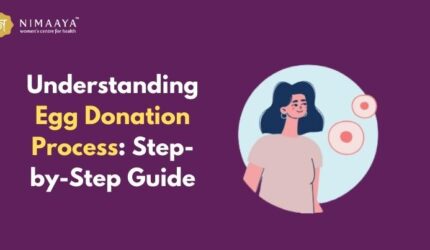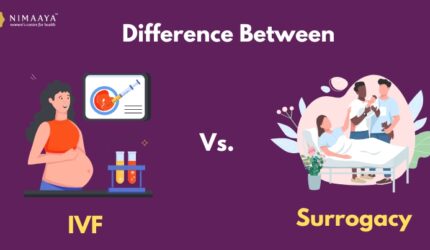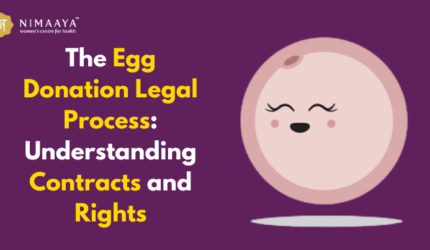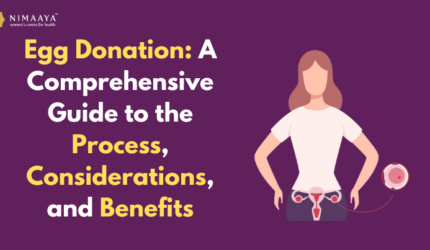Embarking on the journey of becoming an egg donor is a profound and altruistic decision, a choice that has the power to bring joy and fulfillment to individuals struggling with infertility. As the demand for egg donation continues to rise, understanding the stringent eligibility criteria and qualifications becomes paramount. In this comprehensive guide, we delve into the intricacies of egg donation, exploring the age requirements, medical evaluations, psychological assessments, and the nuanced process that determines whether one can be a beacon of hope for hopeful parents.
Unlocking the Gift of Life: Egg Donor Qualifications Explained
Embarking on the altruistic journey of egg donation is a profound decision, necessitating a comprehensive understanding of the pivotal factor: Egg donor qualifications. Aspiring donors step into a world where compassion meets science, where the gift of life is intricately linked to stringent criteria. In this guide, we unravel the layers of eligibility, exploring age prerequisites, medical assessments, and the delicate psychological considerations that shape the path to becoming an egg donor. Join us on this extraordinary odyssey, where each step is guided by the profound significance of meeting the rigorous Egg donor qualifications.
Also Read: Egg Donation: A Comprehensive Guide to the Process, Considerations, and Benefits
Egg Donor Qualifications and Eligibility Criteria:
Egg donor Age Requirements:
Egg donation is often reserved for women within a specific age range. Generally, candidates are accepted between the ages of 21 and 32, as this age group is considered to offer the optimal balance between reproductive health and egg quality. The reproductive potential is at its peak during this window, ensuring a higher likelihood of successful fertilization during in vitro fertilization or IVF treatments.
Medical Evaluations:
Rigorous medical evaluations are a cornerstone of the egg donation process. Prospective donors undergo a series of tests to assess their overall health and reproductive capacity. These evaluations include a thorough examination of reproductive anatomy, hormone levels, and genetic screenings. Additionally, a family medical history analysis is conducted to identify any hereditary conditions that may affect the health of the potential offspring.
Psychological Assessments:
The emotional and psychological well-being of an egg donor is equally vital. A comprehensive psychological assessment is conducted to ensure that the donor is mentally prepared for the emotional aspects of egg donation. This evaluation helps identify potential stressors and ensures that the donor has a strong support system in place.
Egg Donation Screening:
The screening process is meticulous, involving a detailed review of the donor’s medical and personal history. This step aims to identify any potential egg donation disqualifiers, such as a history of certain medical conditions or lifestyle choices that may impact the success of the procedure. A stringent screening process ensures the highest level of safety for both the donor and the intended parents.
Also Read: Understanding Egg Donation Process: Step-by-Step Guide
Egg Donation Process: Addressing Common Queries
Is Egg Donation Painful?
A common concern among potential egg donors is the perception of pain associated with the process. Understanding the reality of egg donation is vital in dispelling myths. While discomfort may be experienced during the retrieval procedure, advancements in medical technology have significantly minimized pain. Prospective donors must communicate openly with fertility specialists, ensuring they have a clear understanding of what to expect and how any potential discomfort can be managed.
Egg Donor Pay: Recognizing the Value of Contribution
As the altruistic act of egg donation involves a significant commitment of time and energy, compensation is provided to recognize the value of the donor’s contribution. Female egg donor prices in India, for example, may vary, and potential donors need to be aware of the financial aspects involved. Understanding the compensation structure, including reimbursement for expenses, underscores the mutual respect between the donor and the intended parents.
Female Egg Donor Price in India:
Understanding the financial aspect of egg donation is crucial. The compensation or “egg donor pay” can vary, and in India, it depends on various factors, including the fertility clinic, the donor’s experience, and the regional demand for donor eggs. Potential donors need to discuss compensation transparently with the fertility center. Egg donor qualifications play a significant role in determining the compensation offered. Clinics consider the donor’s adherence to stringent eligibility criteria as a reflection of commitment and suitability, influencing the “egg donor pay.” While the female egg donor price in India is competitive, aligning with the donor’s qualifications, it underscores the ethical and compassionate nature of this process. Prospective donors engaging in transparent conversations with the fertility center about compensation ensures a fair acknowledgment of their commitment and adherence to vital Egg donor qualifications.
Egg Donation Rules in India:
India has established guidelines and regulations to govern the process of egg donation. These rules are designed to ensure the ethical and legal aspects of assisted reproduction are upheld. Prospective donors must familiarize themselves with these regulations to navigate the process smoothly.
The landscape of egg donation in India is meticulously governed by Egg donor qualifications, reflecting the nation’s commitment to ethical and legal standards. These regulations encompass a thorough framework, addressing the intricate facets of assisted reproduction. To embark on this noble endeavor, prospective donors are urged to intimately acquaint themselves with these Egg donor qualifications, fostering a seamless navigation through the process. This not only safeguards the integrity of the assisted reproductive journey but also underscores India’s dedication to ensuring a responsible and compassionate approach to egg donation.
Egg Donation Over Age 30:-
While the standard age range for egg donation is 21 to 30, some fertility centers may consider donors over the age of 30. However, this is often an exception, and such donors are subjected to more rigorous scrutiny to ensure the quality and viability of their eggs.
Egg Donor Qualifications Texas:
For prospective egg donors in Texas, understanding the specific qualifications in the state is imperative. While many criteria align with national standards, there may be regional nuances that donors must be aware of. Consulting with fertility specialists in Texas can provide clarity on the unique requirements of the state.
Egg Donor Requirements:-
Navigating the realm of egg donation requires a profound understanding of the egg donor requirements. Egg donor qualifications stand as the crucial pillars determining eligibility for this altruistic endeavor. Prospective donors must meet stringent criteria, encompassing age considerations, rigorous medical evaluations, and psychological assessments. The emphasis on egg donor qualifications ensures the safety and success of the assisted reproductive process. Nimaaya IVF Center, recognizing the significance of these qualifications, diligently guides potential donors through the intricacies, fostering a supportive environment for those committed to this extraordinary journey.
Nimaaya IVF Center: A Beacon of Support
Navigating Egg Donation at Nimaaya IVF Center
For those considering egg donation, partnering with a reputable fertility clinic is paramount. Nimaaya IVF Center, a leader in reproductive medicine, prioritizes the well-being of both donors and recipients. Understanding the specific egg donor qualifications Texas adheres to, Nimaaya ensures a comprehensive screening process, expert medical evaluations, and ongoing support for donors throughout their journey.
Also Read: Exploring the Top 5 IVF Centers in Surat for Successful IVF Journey
Conclusion:-
Becoming an egg donor is a noble venture, but it demands a deep commitment to meeting the stringent egg donor qualifications. As we unravel the intricacies of age requirements, medical evaluations, and psychological assessments, it becomes evident that the process is a harmonious blend of science, compassion, and altruism. By understanding and embracing the qualifications, prospective donors can embark on this life-changing journey, offering the gift of life to those in need. Nimaaya IVF Center stands as a beacon, guiding potential donors through this remarkable process, ensuring that each contribution paves the way for new beginnings and fulfilled dreams.

